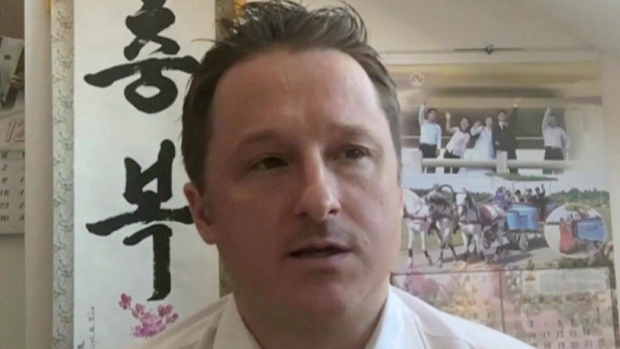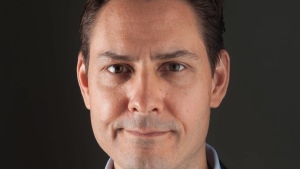Jan 8, 2019
Trudeau calls for Trump to pressure China over two detained Canadians
, Bloomberg News

Justin Trudeau is trying to ratchet up international pressure on China to release a pair of Canadian citizens. The results have been mixed.
State security agents seized Michael Kovrig and Michael Spavor nine days after Canadian authorities, acting on a U.S. request, arrested a top Huawei Technologies Co. executive in Vancouver. Meng Wanzhou is now out on bail, while the two Canadians remain in Chinese custody.
Trudeau and U.S. President Donald Trump “discussed the unlawful detention of two Canadian citizens in China” in a phone call Monday, according to a White House statement. The U.S. has already called for their release and this week Canada also thanked the European Union, United Kingdom, France and Germany for speaking out about Kovrig, a diplomat on leave from his post in Hong Kong, and Spavor, an entrepreneur who ran tours to North Korea.
“What has pleasantly surprised me is the number of countries that have agreed to issue press releases on this case,” said Guy Saint-Jacques, a former Canadian ambassador to China who helped handle the case of a previous pair of detainees. “The net result of all of this is that it’s making the issue better-known internationally, and I think it can serve as a deterrent for the Chinese.”
Not all countries are rallying swiftly to Canada’s side. Trudeau also spoke this week with Japanese Prime Minister Shinzo Abe, but official summaries of that call struck a reserved tone, with Japan saying the leaders agreed on the importance of the rule of law, including in this case. Japan didn’t express concern over the detentions or demand the Canadians be released.
Consular Visits
The prime minister asked for solidarity and assistance from both Trump and Abe during the phone calls, held Monday Ottawa-time, and both other leaders agreed, according to a Canadian government official familiar with the calls, who spoke on condition of anonymity because the discussions were private. It’s unclear what specific help Trudeau is seeking.
Canada issued a brief update on the two cases Tuesday. It said consular staff in China visited Spavor that day but didn’t provide any other information. That marks the second time Canadian officials have said they’ve been granted access to Spavor since his arrest Dec. 10, while Kovrig has only been visited in Chinese custody once since he was held separately that same day. Saint-Jacques said it’s customary in China to receive consular access once per month.

Canada “will continue to seek further access to Mr. Kovrig,” the foreign ministry said in a statement. “The Canadian government remains deeply concerned by the arbitrary detention by Chinese authorities of these two Canadians since last month and continues to call for their immediate release.”
U.S. Secretary of State Mike Pompeo has sided firmly with Canada, saying alongside Foreign Minister Chrystia Freeland last month in Washington that Kovrig and Spavor “ought to be returned.”
While Trudeau’s office said he and Trump discussed “the arbitrary detention of two Canadians in China” and “agreed to continue to seek their release,” the Canadian summary of the Abe call said only that the leaders “discussed the detention of two Canadian citizens” and “reiterated the importance of respecting and adhering to justice and the rule of law.”
The more subdued statement after a call with Abe is expected, Saint-Jacques said. “It would have been very difficult to get them to ask for more than that,” the ex-envoy said. “The Japanese relationship with China has been improving in the last six months, and therefore that’s why maybe Abe wants to be careful.”
Other countries have expressed varying levels of concern without calling for the release of the two men.
U.K. Foreign Secretary Jeremy Hunt said last month he was “deeply concerned by suggestions of a political motivation for the detention of two Canadian citizens by the Chinese government.” The EU expressed support for Canada and called on China to allow lawyers to visit Kovrig and Spavor, saying their capture “raises concerns about legitimate research and business practices in China.”
France said it was “preoccupied” by the Canadians’ arrest, calling on China to treat them fairly, while Germany said it was “very concerned that the arrests of two Canadians in China may be politically motivated.” German academics have also warned of a chill stemming from the two Canadians’ seizure.
Australia’s government expressed concern about the cases late in December, and has faced criticism for not joining Canada and the U.S. in demanding the release of Kovrig and Spavor. Canada’s ambassador to China, John McCallum, also publicly thanked the governments of Estonia, Latvia and Lithuania for statements of support for the two detained Canadians.
--With assistance from Justin Sink, Gregory Viscusi, Alex Morales and Isabel Reynolds.

